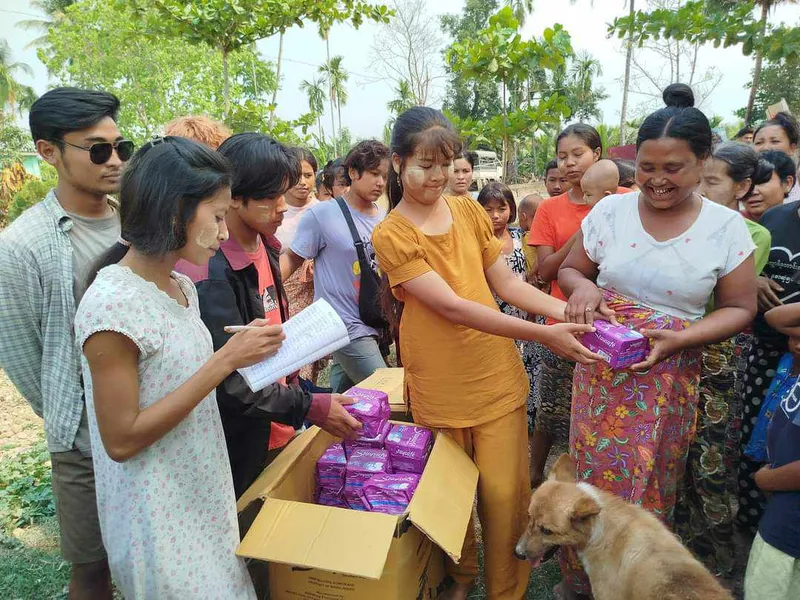- Web Master
- October 04, 2024
Women in Arakan face difficulties due to scarcity of sanitary pads
- By: Web Master
- | Date: 25 September 2024
- | Viewer: 839
Thinzar Nwe, Narinjara News, 25 September 2024
The women in Arakan State are struggling to obtain
sanitary pads as the items become costly and scarce in the market.
Just before the recent battles in the Arakan region, a
pack of sanitary pads cost over Kyats 1,000 and now it costs Kyats 5,000 to
7,000.
A woman from Lay Gwa Sone village under Rathedaung township told
Narinjara News that she cannot afford sanitary pads because of high
prices and hence uses clothes for the same.
“In rural areas, most of the women can’t afford the
sanitary pads. Often the shops run out of supplies and thus forcing them to use
clothes instead. I worry if the long-term use of clothes harms our health,” she
added.
She also mentioned if they do not find sanitary pads available, they prefer to
stay inside rather than going out for daily works.
“Often the women stay at home without using pads.
Society also has many stigmas about the menstruation of a lady. There are many
other difficulties as well,” she stated.
Following the recent battles, the military junta
blocked the land and waterways and it created the shortages of different goods
including sanitary pads in the Arakan region.
As the intense fighting is going on in various
parts of Arakan State, most people become jobless. Due to the increasing price
of sanitary pads, many women start using alternatives like clothes.
Daw Ma Pu from an internally displaced Muslim camp in
Myebon told Narinjara News that they are using only clothes as they do not have
sanitary pads.
“Women need personal care products including
underwear. We haven’t received support for sanitary pads and hence used the
clothes. We can’t afford the prices as well. We will appreciate it if any
assistance arrives,” she added.
Most women in IDP and Muslim camps in the Arakanese
townships of Pauktaw, Minbya, Mrauk-U, Kyauktaw, Ponnagyun, Buthidaung
and Ramree are facing difficulties in accessing sanitary pads for their use in
need.
The health workers instructed that a sanitary pad
should be used for five hours only. The long-term use of sanitary pads can
increase the risk of ovarian and bladder cancer.
Photograph: Ponnagyun Youths Association (PYA)
distributes sanitary pads to internally displaced persons (Photo: PYA)


